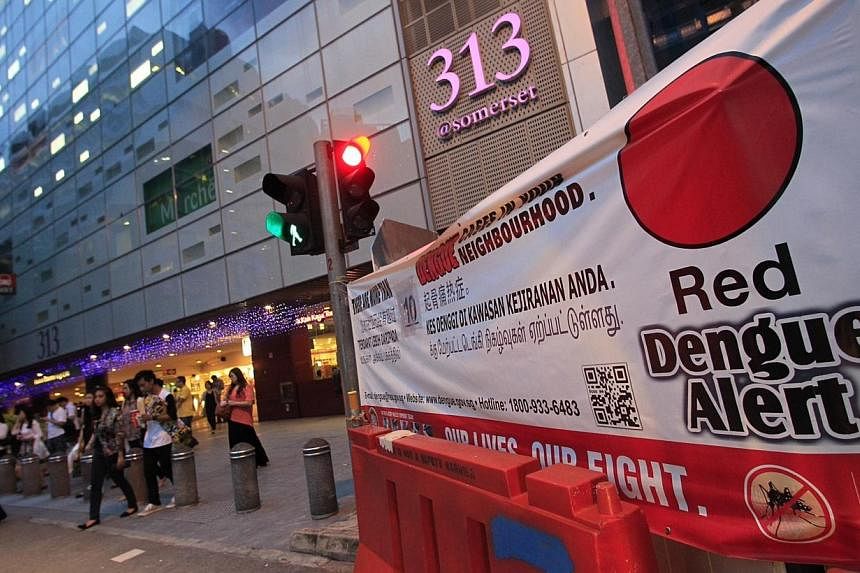This article was first published on June 16, 2014
The world's first dengue vaccine could be ready by the end of next year, and Singapore may be one of the first countries to get it.
The need could not be greater. Dengue is the fastest spreading vector-borne viral disease, says the World Health Organisation, and is endemic in over 100 countries. Four in 10 people are at risk of getting infected.
And more than two-thirds of the world's dengue cases come from Asia, with South-east Asia being a major contributor.
Drug giant Sanofi Pasteur aims to put its vaccine in markets where it is most needed first, and that includes South-east Asia.
"The overall ambition is first to address the disease where it is most severe," said Dr Guillaume Leroy, who heads the company's dengue vaccine unit.
At the two-day Asean Dengue Summit held in Angeles City in the Philippines over the weekend, Dr Leroy announced the success of an Asian clinical trial to test the vaccine's effectiveness.
After the vaccine candidate was administered, dengue cases in the group of about 10,000 - including participants from Indonesia, Thailand and Malaysia - fell by more than half.
Another trial, involving more than 20,000 people, is currently under way in Latin America.
"We are at a very critical milestone," Dr Leroy said. "By the end of the year, we will have a full analysis of all the results."
The outcome of these latest trials brings Sanofi Pasteur one step closer to a goal which has been more than 20 years in the making.
The company's work on a dengue vaccine has been hampered by the fact that dengue has four different strains. All must be effectively subdued before any vaccine can be counted a success - which is what Sanofi Pasteur says it has managed to do.
The disease is on the rise in the region.
In Singapore, dengue cases hit an all-time high last year, with more than 22,000 cases and seven deaths reported.
Across South-east Asia, there were about 100,000 reported cases in 2000. By 2010, this figure had reached 700,000.
Experts say this figure might be only the tip of the iceberg. "Not all the cases come to the attention of the public health authorities," said health economist Donald Shepard.
The disease tends to be under-reported due to poor surveillance, or because it is misdiagnosed as another condition.
Dr Maria Rosario Capeding, who heads the dengue study group in the Philippines' Research Institute for Tropical Medicine, welcomed the progress made towards a working dengue vaccine.
"The worst thing is the uncertainty of the disease," she said. "As a mother whose son has been ill with dengue, I can tell you that it is the worst nightmare."
As soon as its vaccine is approved for use, Sanofi Pasteur will be able to churn out 100 million doses a year. In 2009 - long before the vaccine neared completion - the company invested in a €350 million (S$593 million) production plant located in France.
"It was a big risk," Dr Leroy said. "But imagine not making the investment, getting the results, and then telling countries they have to wait five more years."

